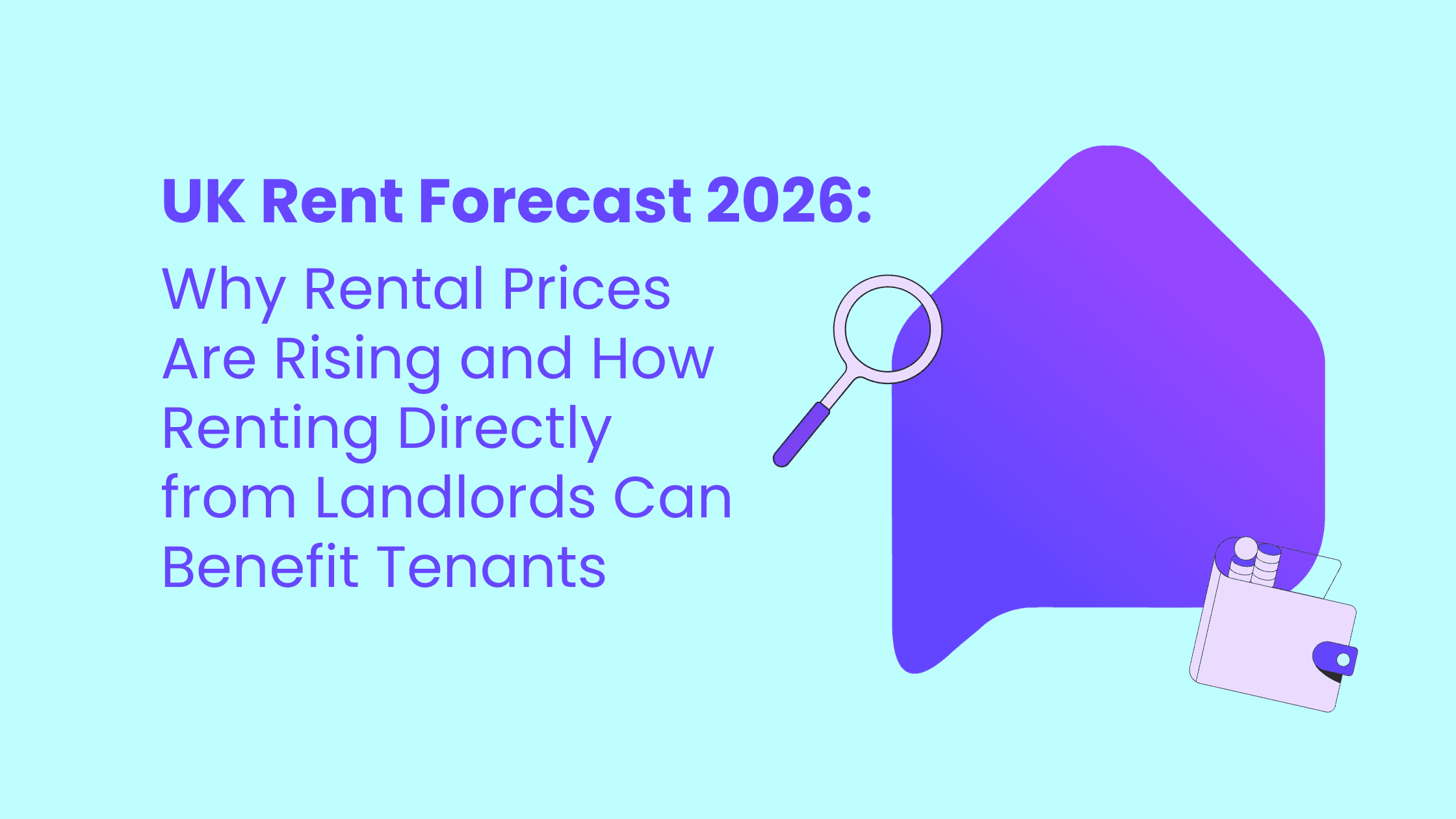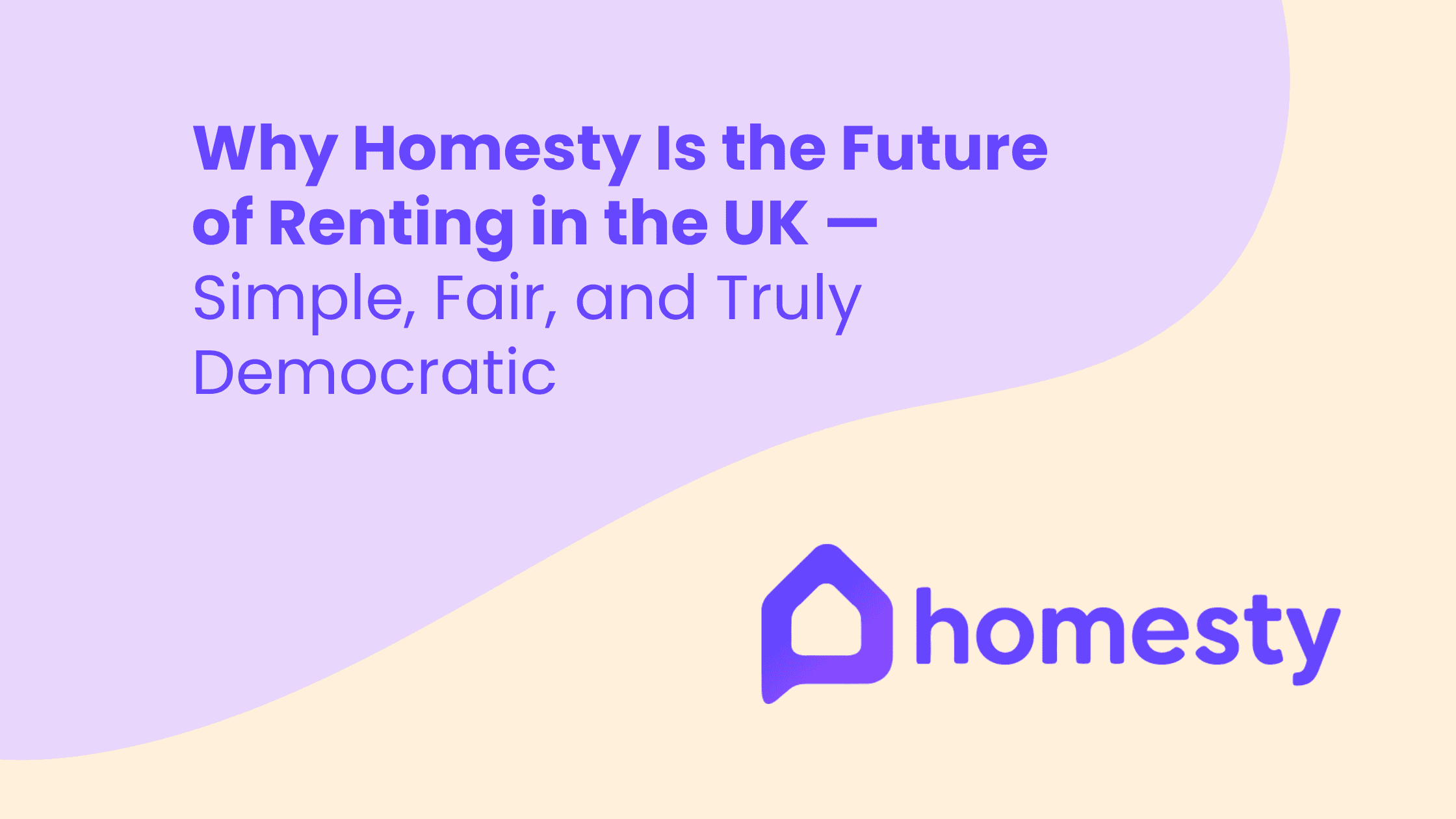Green Party Votes to ‘Abolish Landlords’ – What It Really Means for Renters and Property Owners
6 Oct 2025
Green Party abolish landlords, Green Party housing policy UK, UK renting reform, landlord ban proposal, right to buy for tenants, Homesty rental platform, peer-to-peer renting UK, make renting human
Green Party Votes to ‘Abolish Landlords’ – What It Really Means for Renters and Property Owners
When the Green Party voted to “abolish landlords”, the internet nearly combusted. Social feeds filled with memes, outrage, and a few confused estate agents wondering if they’d woken up in a different economic system. But before anyone starts panic-selling their rental portfolio or moving into a commune, let’s break down what’s really going on — and what it might mean for the future of renting in the UK.
Because at Homesty, we’re all about making renting human — and that includes decoding political chaos when it affects the homes we live in.
The Green Party’s Big Idea: Ending ‘Landlordism’
At the Green Party’s Autumn Conference, members passed a motion calling for the “abolition of private landlordism.” Catchy headline? Definitely. Literal? Not quite.
What they’re actually talking about is a gradual phase-out of private landlords in favour of social housing, tenant ownership, and community-led housing. The motion outlines a series of changes that would reshape how people rent and own homes in the UK — including:
Rent controls on private homes
Banning buy-to-let mortgages (yes, really)
Tenant right-to-buy options, where renters could offset rent they’ve already paid against the property’s value
Long-term tenancies that only tenants can end
Higher taxes on rental income and empty homes
In short: fewer investors treating property as a pension plan, more people owning the homes they actually live in.
Sounds lovely in theory. But in practice? It’s complicated.
Why the Green Party Thinks This Is Necessary
Let’s be fair — the housing crisis didn’t start with the Greens.
Private rents have hit record highs across most of the UK. Home ownership is slipping further out of reach for anyone who isn’t already on the ladder. And millions of tenants face insecure contracts, patchy maintenance, and landlords who ghost harder than a bad Tinder date.
From that perspective, the Greens have a point. The private rental sector has ballooned since the 1990s, often filling the gaps left by decades of underfunded social housing. The result is a system where too many people pay too much for homes they can never own.
Their logic: if property speculation and landlord profit are driving inequality, the solution is to remove the incentive entirely.
Why It’s Sending Landlords into Meltdown
Of course, if you are a landlord, this sounds like the start of a very bad day.
Banning buy-to-let mortgages would pull the rug from under the private rental sector. Even the most responsible landlords — the ones providing quality, affordable homes — would be forced to exit or convert their business models.
And since around 1 in 5 UK households rent privately, that’s a big shift to manage without creating chaos. If landlords sell en masse before new social housing appears, we could see a serious shortage of rental properties, driving up competition (and ironically, rent prices).
So yes — there’s a risk this plan could backfire spectacularly if handled too quickly.
The Good, the Bad, and the Potentially Brilliant
👍 The Good
Tenant empowerment: Longer tenancies and fairer rent controls could give renters real stability — the kind that’s been missing for years.
Focus on ownership: Tenant right-to-buy could help long-term renters finally cross the ownership line, especially if government-backed financing makes it accessible.
Reduced speculation: Making property less profitable for investors could cool house price inflation, slowly restoring some sanity to the market.
👎 The Bad
Landlord flight: Smaller landlords, who make up the majority of the sector, might sell off properties before reforms take hold. That means fewer homes to rent in the short term.
Legal chaos: Changing tenancy law, mortgage policy, and ownership rights isn’t like flicking a switch — it’s more like rebuilding the wiring mid-storm.
Funding gap: Shifting towards social and cooperative housing requires massive public investment. Without that, the plan is all headline, no housing.
🤞 The Potentially Brilliant
If — and it’s a big if — the Green Party can balance reform with realism, this could be the start of a healthier, more human housing system. Less financial speculation, more genuine homes. But that’s going to take careful planning, not slogans.
So… Should You Be Panicking?
Not yet.
This is still party policy, not government policy. The Greens have one MP, and even if the sentiment spreads, it would take years (if not decades) for such radical reform to become law.
But it does signal a shift in how the UK talks about housing. For decades, political parties tiptoed around landlord interests. The Greens are testing the opposite: what if housing stopped being an investment vehicle altogether?
Love it or loathe it, that’s a debate the country probably needs.
What Homesty Thinks
At Homesty, we’re not here to pick sides — we’re here to make renting work better for everyone.
We believe tenants and landlords can coexist — transparently, fairly, and without all the usual friction. Because let’s be honest: most landlords aren’t cartoon villains hoarding gold coins; they’re just people trying to make a fair return while offering someone a home.
And most tenants aren’t freeloaders or rebels; they’re responsible adults who just want safe, affordable housing without the stress of endless admin or ghosting landlords.
That’s why Homesty exists — to rebuild trust, one tenancy at a time.
No middlemen. We connect tenants and landlords directly, person-to-person.
No sneaky fees. Landlords only pay £39 if the tenant moves in — no upfront card, no gimmicks.
No dodgy WhatsApp numbers. Our platform keeps communication safe, secure, and professional.
All legal and Right to Rent–compliant, powered by Stripe payments and DocuSign contracts.
So whether you think the Green Party’s idea is revolutionary or ridiculous, Homesty’s approach is simple: make the existing system better while we debate what the future looks like.
Final Thoughts: A New Era of Renting?
Maybe the Green Party’s “abolish landlords” motion won’t survive first contact with political reality. But it’s a sign of the times. The old property model — buy, rent, profit — is under pressure, and new ways of thinking about housing are emerging fast.
Co-living, shared ownership, community trusts, peer-to-peer platforms like Homesty — these aren’t radical fantasies anymore. They’re practical, human responses to a housing system that’s stopped working for most people.
And if the Greens have done one good thing with this motion, it’s this: they’ve made everyone talk about who renting is really for.
At Homesty, we know the answer: it’s for people. Not portfolios.
Newsletter
Enjoyed this read? Subscribe.
Discover design insights, project updates, and tips to elevate your work straight to your inbox.
Unsubscribe at any time
Updated on
6 Oct 2025




